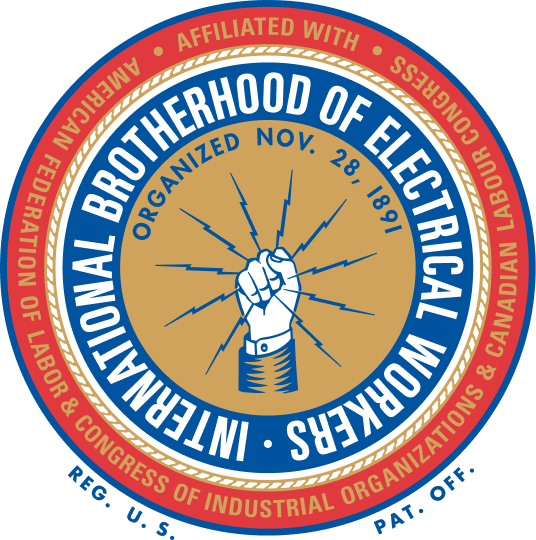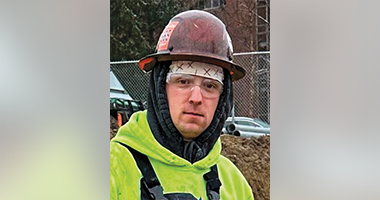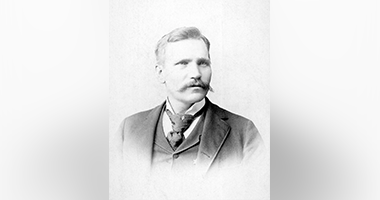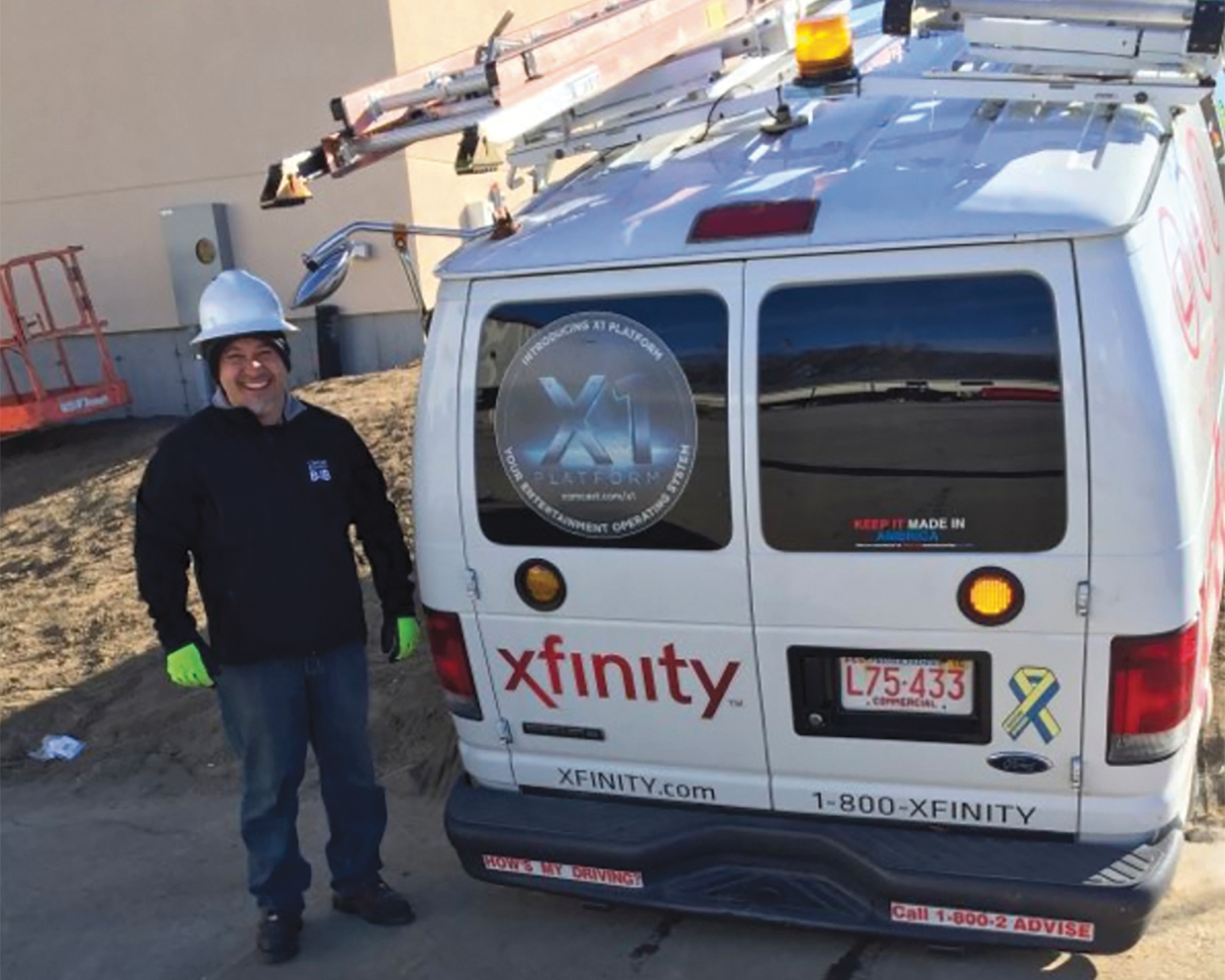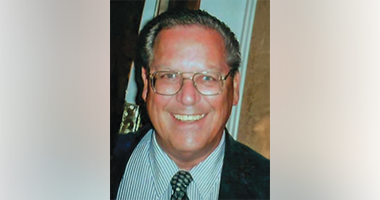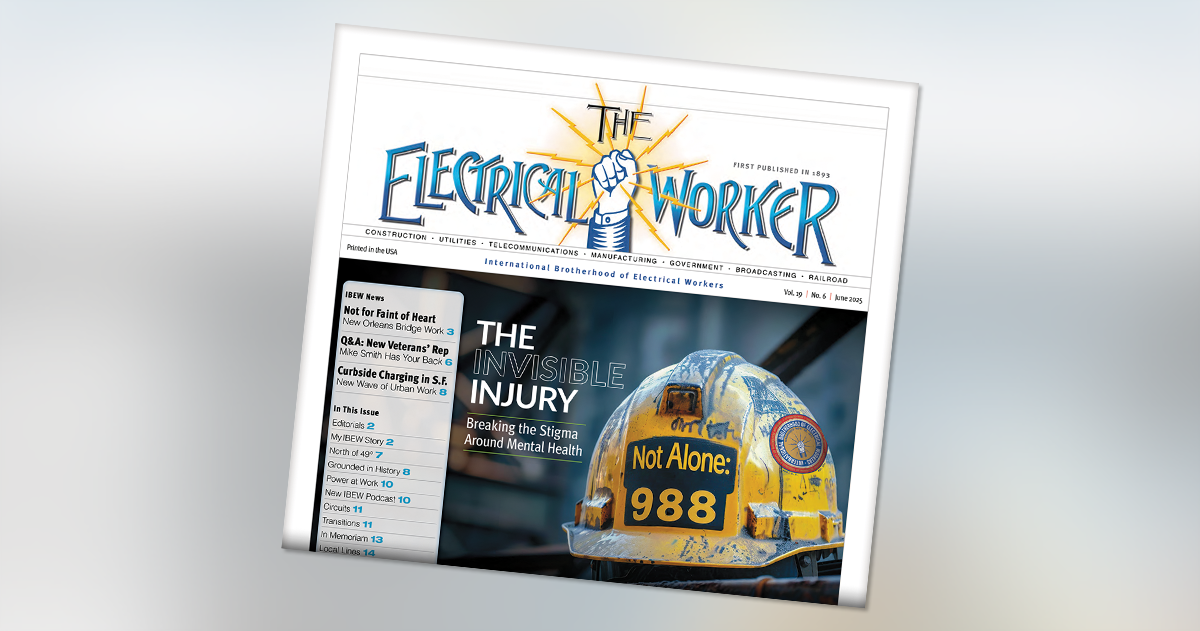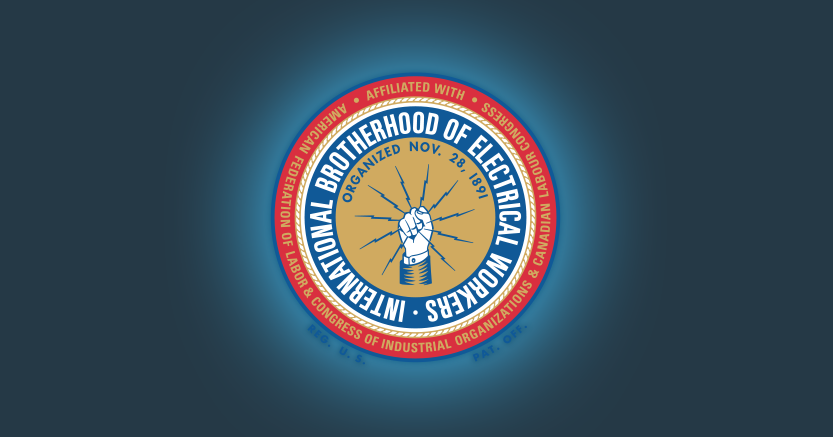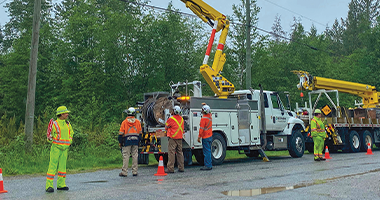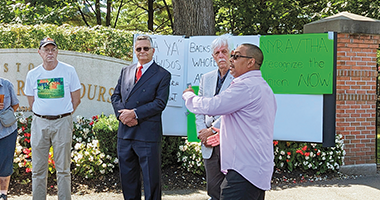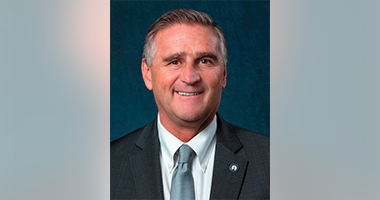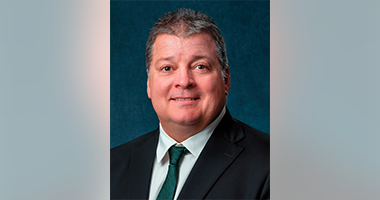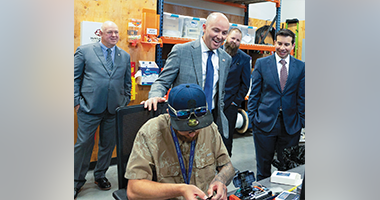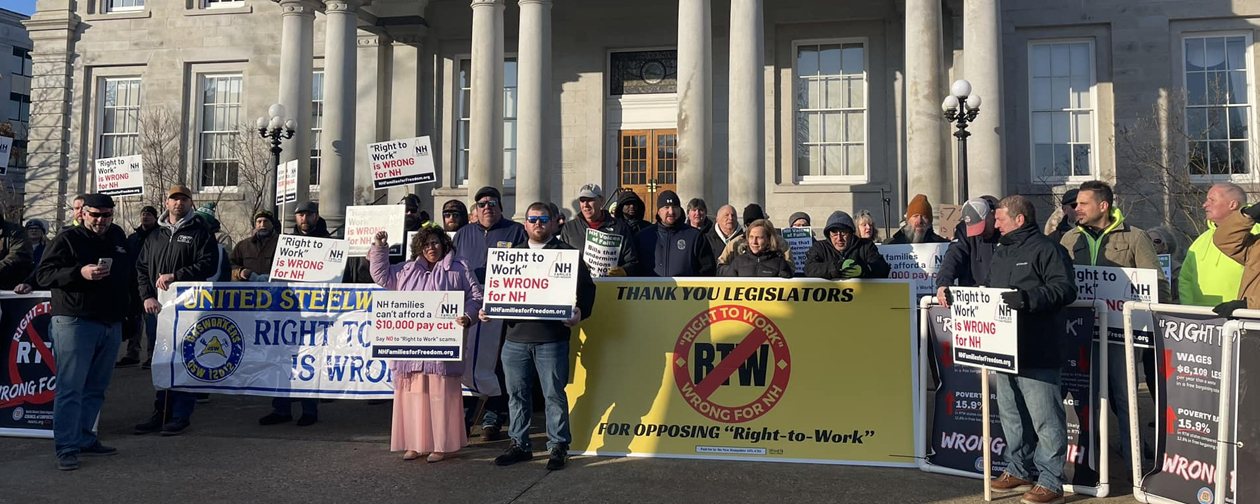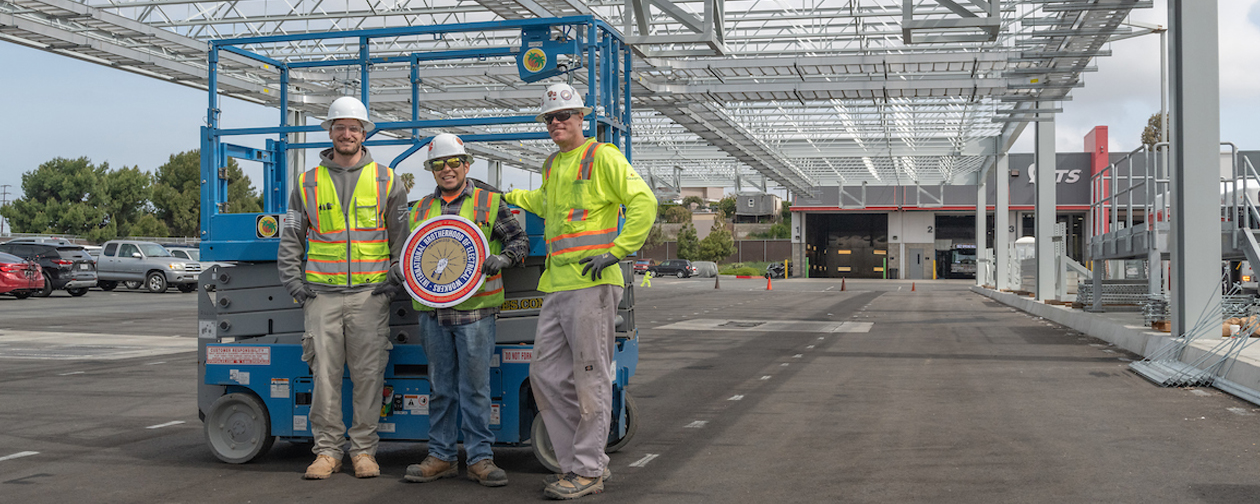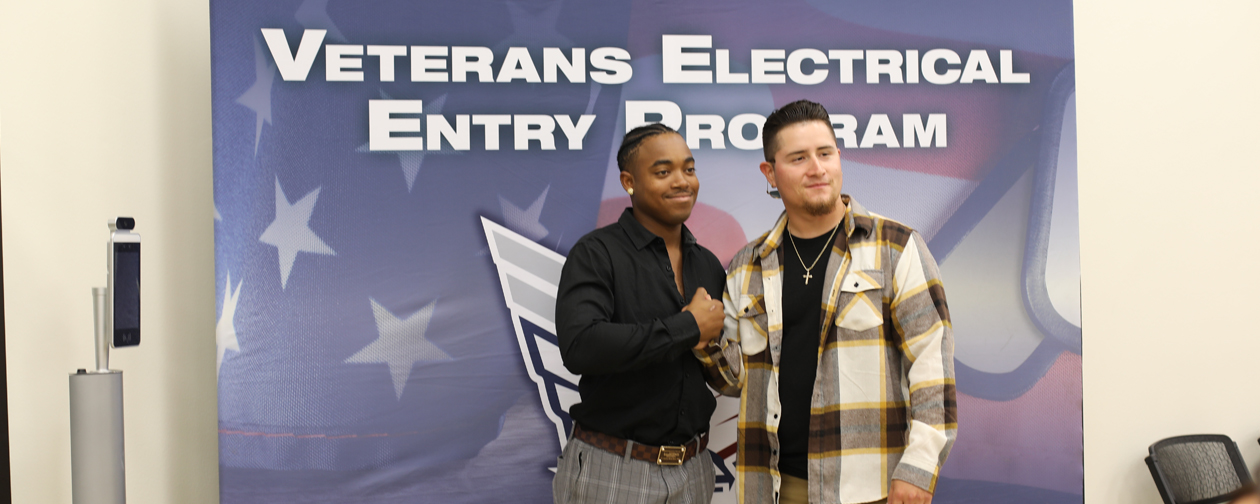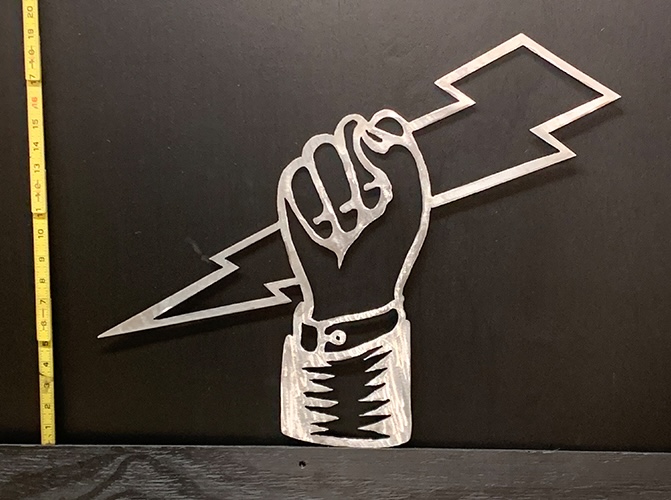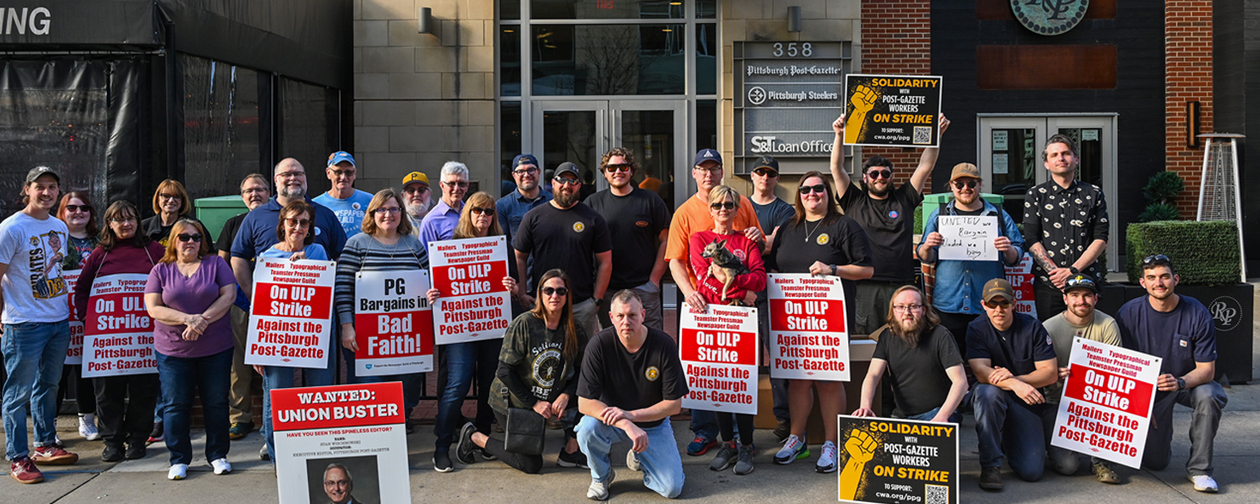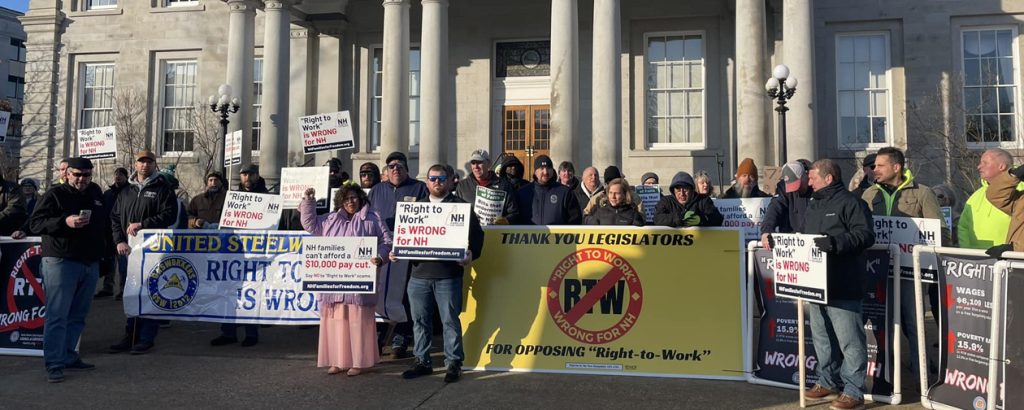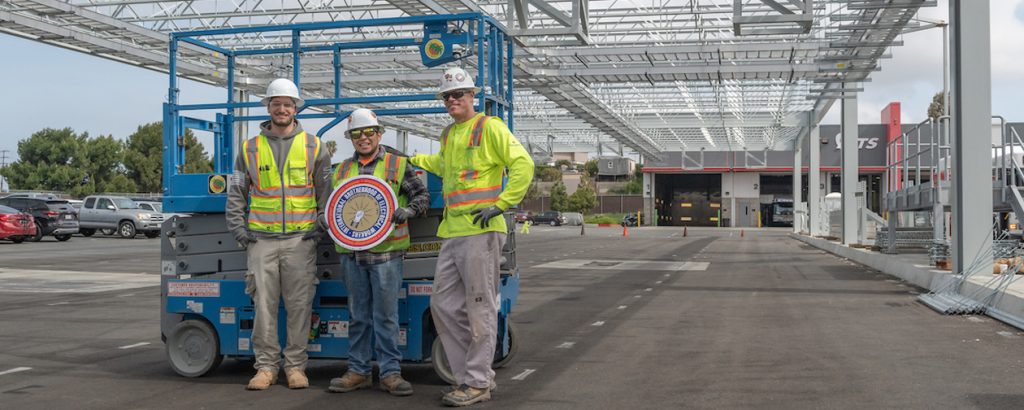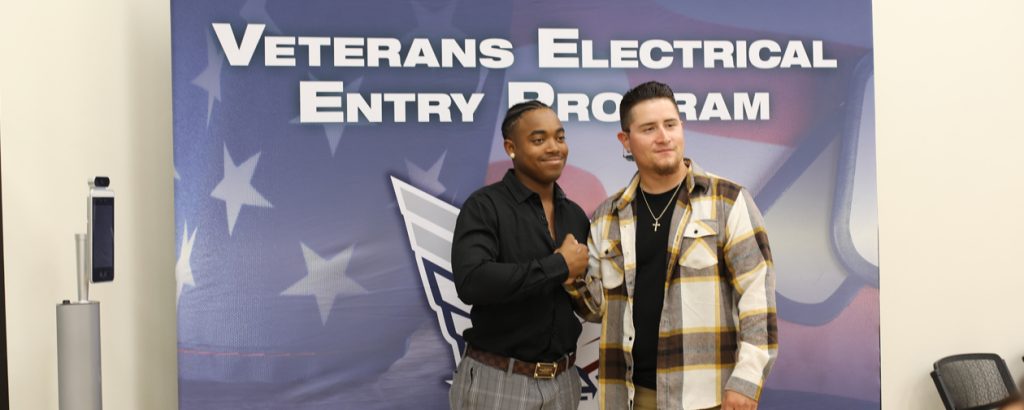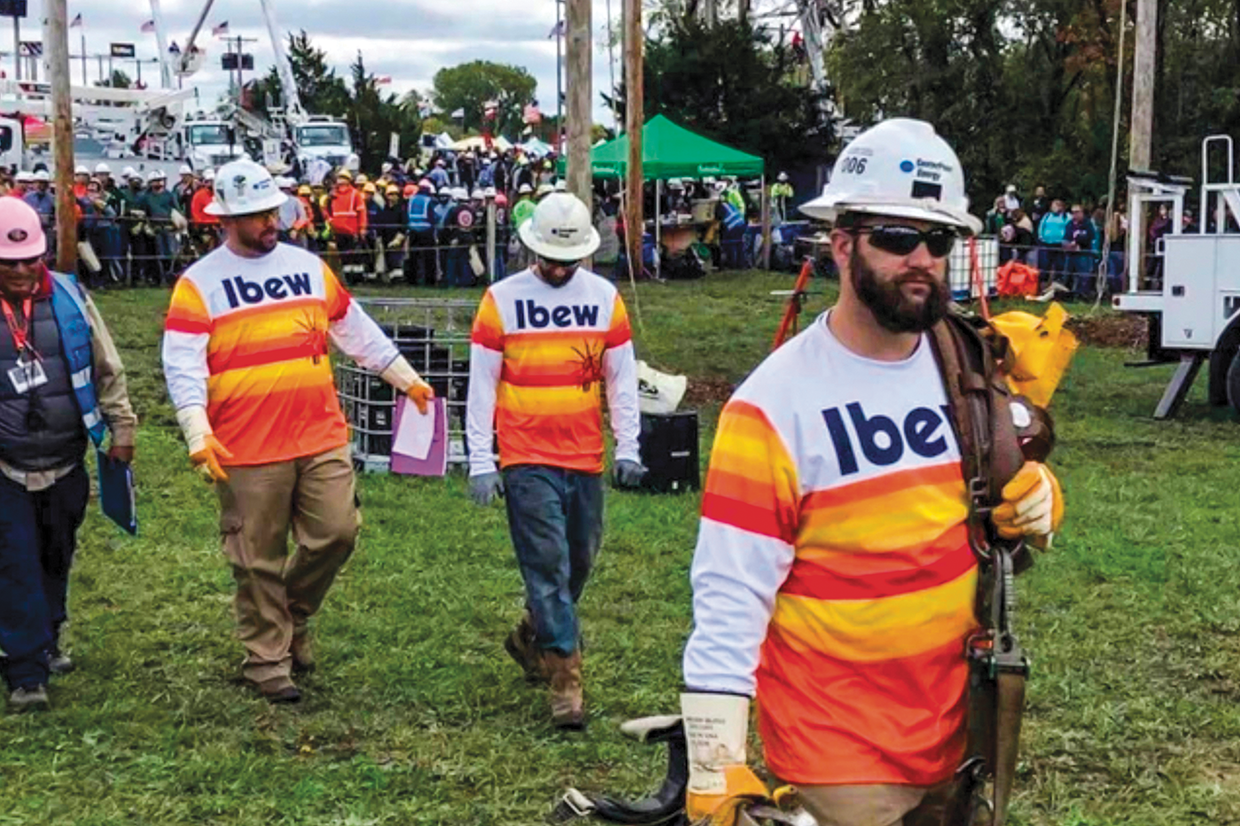
Lineworkers are used to working under dangerous conditions, from downed power lines to high-voltage electricity. What they shouldn’t experience on the job is harassment and physical assault. A new law in Texas aims to correct this problem.
“Our members went through hell following Hurricane Beryl — enduring threats and even assault — all while trying to get the power back on for folks,” Houston Local 66 Business Manager Ed Allen said. “This is about safety. Our repair crews work tirelessly during natural disasters, and this bill will keep them a bit more protected.”
The law, which had bipartisan support, increases the penalties for both harassment and assault. Beginning Sept. 1, when it goes into effect, assaulting a utility worker will be punishable as a third-degree felony, which carries with it a maximum of 10 years in prison and a $10,000 fine. The penalty for harassment will increase from a Class B misdemeanor to a Class A, which could get someone a one-year jail sentence and a $4,000 fine.
Texas is not known for being worker-friendly, making the relative ease of getting the bill passed an anomaly. But the way many lineworkers were treated in the aftermath of Hurricane Beryl served as a wakeup call for many legislators, particularly those from hard-hit Houston.
It took more than 10 days last summer, when Beryl hit, to get all the power restored, which resulted in a lot of angry customers. Unfortunately, the only people from the utility company who most saw were lineworkers, who bore the brunt of people’s frustration.
Workers endured verbal harassment, guns pulled on them and even being shot at with pellet guns. One staging area that had about 2,000 crews had to be relocated because of all the abuse.
“They lost roughly three days of work because of that,” said Local 66 Business Representative Donny Mayo, who testified in support of the bill.
Some out-of-state crews were ready to head back home because of the animosity and danger, Texas AFL-CIO President Rick Levy said.
“Beryl put everything in really stark terms,” Levy said. “People were frustrated, and rightfully so, but they took it out on the workers.”
Levy credits Local 66 for getting the bill over the finish line.
“This bill would not have passed without the IBEW,” he said. “They saw what their members needed, and they painted a clear picture of that need in a way that everyone in the Legislature could understand.”
Mayo noted that the bill was made more palatable to the Legislature by including all utility workers under the new protections, from call center representatives to gas workers to lineworkers.
“The route that [bill author Sen. Carol] Alvarado took, to include all utilities, meant that it wasn’t just a bill for union members,” Mayo said. “Otherwise, we would have had the door slammed on us.”
Representatives of CenterPoint Energy testified alongside Mayo and others in support of the bill, which passed the Senate in April and the House in May. No one testified against it when it was in the Senate’s Criminal Justice Committee, exemplifying the broad backing the legislation had. Gov. Greg Abbott signed it into law June 20.
“It was a very easy win for us to get,” Mayo said. “I can’t thank Senator Alvarado and Representative Sam Harless enough.”
Texas joins roughly 20 other states in enacting legislation to protect lineworkers.
